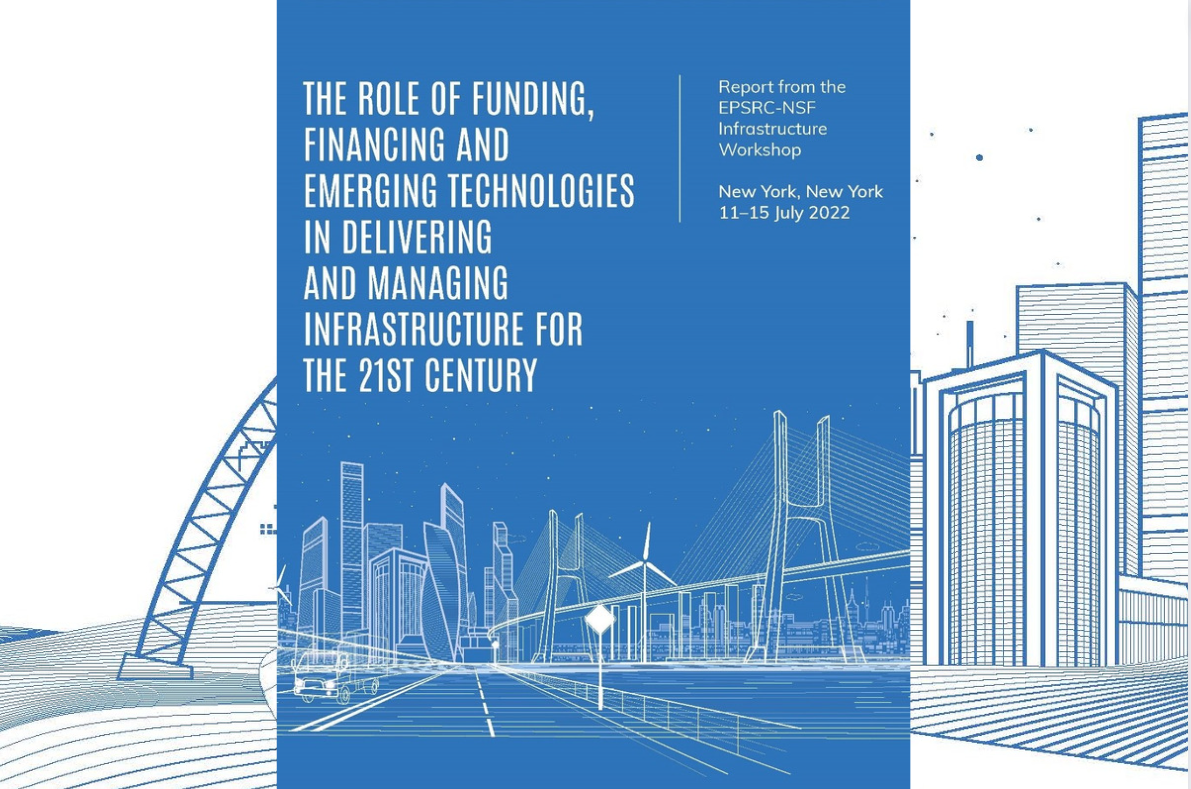
Submitted by Dr Fiorella Del... on Tue, 30/05/2023 - 10:34
CSIC in collaboration with the Cornell Program in Infrastructure Policy has published the final report from the EPSRC–NSF Infrastructure workshop in New York last July: The Role of Funding, Financing and Emerging Technologies in Delivering and Managing Infrastructure for the 21st Century.
This EPSRC–NSF funded workshop, was hosted by the Cambridge Centre for Smart Infrastructure and Construction (CSIC) and the Cornell Program in Infrastructure Policy (CPIP) in New York City, from 11–15 July 2022. The workshop assembled a multidisciplinary group of international experts from academia, policy, and practice, both in-person and online, to explore how to improve infrastructure delivery through innovative funding and financing as well as emerging technologies. Discussions focused on the interconnections between resilience, net-zero carbon and infrastructure equity within the context of infrastructure funding and financing.
The Report captures the outputs of the discussions arising from the workshop and presents recommendations for policy, industry and future research. It addresses the challenges related to infrastructure delivery and resilience, to historical inequities of infrastructure provision and services, and above all to climate change.
Read the Executive Summary and Recommendations here, and the full Report here.
Key recommendations in the Report include:
- Considering the adoption of funding mechanisms that correlate closely with infrastructure use and that vary with the value of the facility at that time.
- Bundling together facility design, construction and operation into one long-term contract to reduce incentives to defer maintenance while enhancing incentives to adopt new technologies and improve life-cycle asset maintenance.
- Adopting measures that support resilience by recognising the need to plan for plausible events, not just the most likely ones.
- Incorporating stakeholders into decision-making about design and funding.
- Every capital project proposal should be reviewed to ascertain whether reducing demand for infrastructure services or refurbishing existing infrastructure are viable and have carbon reduction as a key outcome within the options identified and proposed for implementation.
- Processes should be developed for capturing and analysing carbon data and integrating with existing digital technologies and processes (e.g., BIM models, digital twins) to facilitate the advancement of accurate carbon measurement.
- All actions made or controlled by government at every level should be required to demonstrate how they support local communities and are consistent with UN Sustainable Development Goals while improving the performance and resilience of infrastructure assets and systems.
- Design codes should be reviewed and revised to reduce conservatism and the resultant over-use of material.
- Industry benchmarks and best practice to measure whole-life carbon need to be developed, refined and adopted in order to provide evidence to set targets and establish financial incentives for carbon reduction.
- Incentives for whole-life, risk-based management approaches need to be identified, with risks allocated to those best able to manage them. These should be embedded in contracts to drive adoption of monitoring approaches and motivate better-informed asset management decisions to reduce carbon emissions from operation and maintenance.
The analysis and recommendations should be of interest to scholars, practitioners and policy makers with different backgrounds and perspectives. It should serve as a framework for prioritisation of efforts in infrastructure studies and policies over the next five years, setting up a foundation for a new normal for infrastructure sustainability and resilience.
Contact us at csic-comms@eng.cam.ac.uk with any queries or comments.
